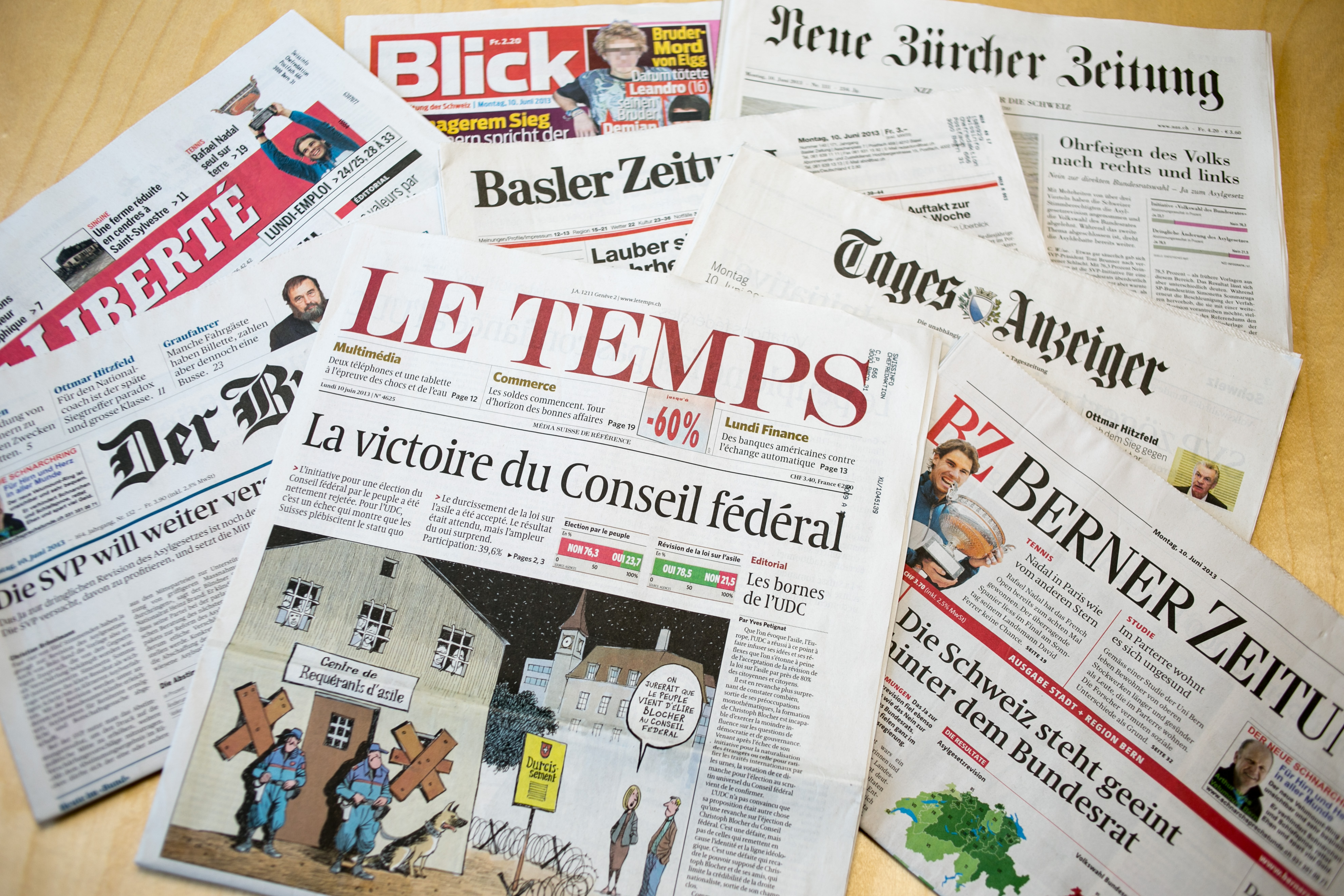Post-vote, Swiss media weigh in on next steps

The monochromatic infographics in Monday’s papers illustrate how the Swiss voted overwhelmingly in favour of and against the two issues facing them at the polls this past weekend, showing welcome and uncommon unanimity around the nation.
As the Tribune de Genève put it, there was “no apparent shadow of the Röstigraben” – the imaginary trench that divides the German and French-speaking parts of the country.
The loud “yes” to asylum reform, with 78.5 per cent of the vote, is “also a vote of confidence for (Justice Minister) Simonetta Sommaruga” said the Bern-based newspaper Der Bund newspaper, adding, though, that it hardly guarantees success for the introduction of swifter asylum procedures.
“However, in terms of speed, the law is not decisive – but rather its practical implementation,” continued the paper, pointing out that without suitable federal housing as well as incarceration cells, it will be difficult to ensure the law’s mandates are carried out.
PLACEHOLDERThe Neue Zürcher Zeitung also cautioned that the reform’s acceptance wouldn’t automatically translate into success.
“The winners can’t just be proud and happy, as the success rests partly on failure. Previous reforms were deemed inadequate. And the current reform could also raise false hopes,” stated the paper, noting, for example, that the provision on conscientious objectors does not restrict the definition of a refugee. Under the new reform, objectors as well as military deserters lose their previously guaranteed refugee status.
The Fribourg newspaper La Liberté went so far as to describe it as “an invitation for more restrictive reforms” and a blow to “the pride of Switzerland: its humanitarian tradition”.
Le Temps of Geneva acknowledged that there was still a lot of work to do in the asylum arena and emphasised that was important to speed up the application process for the sake of the refugees.
“A calm debate is necessary in order to avoid watering down Switzerland’s humanitarian tradition,” it stated.
Endorsement of direct democracy
The other issue in Sunday’s vote was a Swiss People’s Party proposal suggesting that Swiss voters be able to elect cabinet members directly. But voters clearly don’t feel the need; 76.3 per cent said “no”.
“Never change a winning team! This rule from sports also goes for the Swiss political system,” wrote the tabloid Blick. It said the “no” vote had several reasons behind it, among them that direct democracy was working, especially in the current tough financial landscape.
The Zurich-based Tages-Anzeiger echoed this sentiment: “A people that turns down more of a say (in government) must be a content people.” It also suggested that the initiative was an effort by the People’s Party to cope with ex-cabinet member Christoph Blocher losing his seat.
“Now that this psychological hygiene exercise is finished, the People’s Party should concentrate on having appropriate representation in the cabinet. After yesterday’s no, that would mean personal political training for candidates that have a chance of being elected in parliament,” concluded the Tages-Anzeiger.

In compliance with the JTI standards
More: SWI swissinfo.ch certified by the Journalism Trust Initiative
You can find an overview of ongoing debates with our journalists here. Please join us!
If you want to start a conversation about a topic raised in this article or want to report factual errors, email us at english@swissinfo.ch.